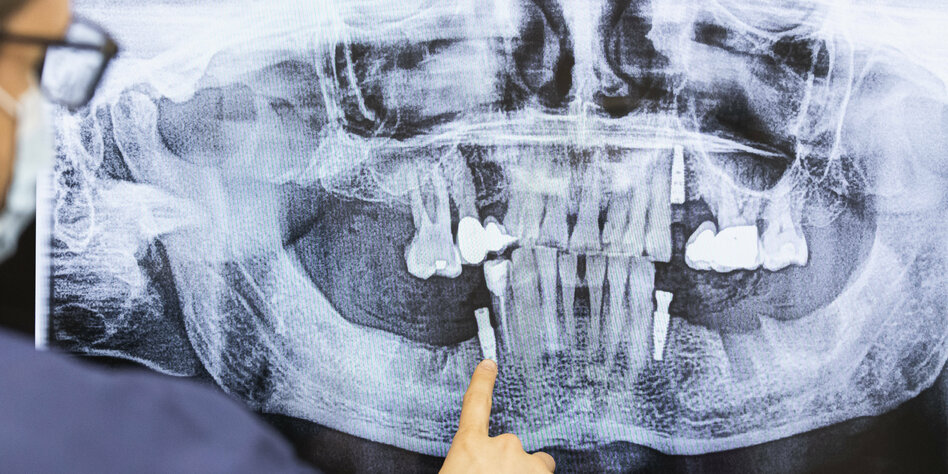AI has become indispensable. But what is needed are clear rules. The EU is on the right path.

AI may also be useful in evaluating X-ray images Photo: Westend61/imago
Have you heard? Hollywood star Scarlett Johansson is taking action against OpenAI, currently the largest company developing artificial intelligence (AI). OpenAI gave her AI chatbot a voice so similar to Johansson's that not even people close to her noticed the difference in her. A conflict with a joke: after all, Johansson voiced an AI in the movie “Her.”
The film was released in theaters about ten years ago. And what seemed like science fiction back then (an AI capable of human speech) is now state-of-the-art. It is high time that the EU adopted its AI rules. The technology is already present in much more than it seems: in image processing in smartphone applications, in cars, and it has long since arrived in medicine. So what to do?
Spend the rest of your life in a cave as remote as possible, fearing that at some point an artificial intelligence system will get out of control, take over the world and wipe out humanity? It is these fears that prevent some people from dealing with AI, practically or initially mentally. But that is a mistake.
It is no coincidence that threatening narratives are cultivated by industry players who want to use them to magnify the power of their technology and distract attention from real problems. Because they have been there for a long time and they are numerous. A short excerpt: Fake news and propaganda can be produced quickly and in large quantities.
The quality of what services like ChatGPT offer is mixed, but even if the system repeatedly generates false information about real people, the manufacturer cannot correct it. New evaluation techniques, for example of images showing people, awaken the desire for surveillance. And if medical diagnostic AI makes a wrong decision, who is responsible?
But when used correctly, AI can do useful things: Studies repeatedly show that AI systems perform better than humans when analyzing image processes, for example. No wonder, pattern recognition is one of the easiest exercises, there is no boredom or fatigue after the umpteenth x-ray or the fatigue of a night shift.
And if the use of AI can better forecast extreme weather conditions or reduce food waste, why not use it? The future is not AI without humans. But neither is a human being without AI. But both together. Use them with full awareness of their respective strengths and weaknesses.
